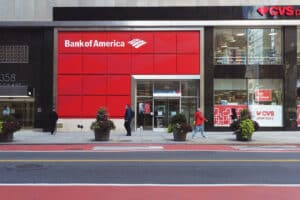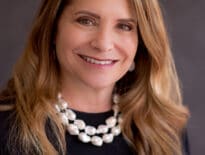
Bank on Boston has partnered with Bank of America and other lenders to offer low-cost checking accounts to unbanked city residents.
The pandemic has shown the challenges many low-income households face from not having banking relationships, including delays in receiving critical funds, costs for using alternative services and struggles navigating the Paycheck Protection Program.
“What COVID did, especially because of the expediency of all of the different response programs nationally and locally, it really put into perspective how many people don’t have a consistent banking process or strategy,” said David Rothstein, a senior principal with the New York-based Cities for Financial Empowerment Fund, which leads the national Bank On movement to bring unbanked and underbanked individuals and households into the mainstream financial system.
About 3.7 percent of Massachusetts households were unbanked in 2019, according to the FDIC’s most recent household banking survey. While lower than the U.S. rate of 5.4 percent, the state, with about 2.6 million households, could have more than 90,000 unbanked households.
With the pandemic raising awareness about the problems faced by the unbanked, Bank On coalitions, including the local one in Boston, say they plan to use the momentum to continue to address barriers that have kept people out of the financial system.
The most common reasons for being unbanked, according to the FDIC survey, were not having enough money to meet minimum balance requirements and lack of trust in banks. These households instead use alternative financial products like check-cashing services that come with higher fees compared to traditional banking, which create an added burden for poor Americans.
Since the pandemic, the CFE Fund has seen the banking industry’s interest in the Bank On movement increase. The American Bankers Association last fall encouraged banks to explore Bank On products to help bring more people into the financial system, and several core technology providers have announced initiatives to help banks establish these products.
Financial institutions develop Bank On products using the CFE Fund’s national standards that aim to eliminate the barriers that often make people ineligible for banking products. These standards include a minimum account opening requirement of no more than $25, monthly maintenance fees of $5 or less, and no fees for overdrafts or insufficient funds. The CFE Fund certifies whether products meet the standards, and more than 70 financial institutions now have certified products.
Building Trust a Priority
Communities across the U.S. have Bank On coalitions. Some, like Bank On Boston, partner with the CFE Fund while others are modeled after the national program, including Bank On Worcester County.
A key feature of a Bank On coalition is the involvement of government agencies and service organizations that already work with the same demographics that often include the unbanked.
“The goal there is to bring people in and meet them where they’re at,” Rothstein said. “Bringing them into the different programs that are already being offered and adding banking access as an element of that.”
“Meeting them where they’re at” is important to building trust in banking, said Bank On Boston’s program manager Michael D. Andelman.
The city of Boston established Bank On Boston in 2017 as part of the Office of Financial Empowerment. While the city supported the initiative with a fellowship program, it did not have a full-time program manager until hiring Andelman in November 2020 after he had completed a one-year fellowship.
Bank On Boston partnered with two banks in 2020, Bank of America and Chase Bank, to offer accounts that meet national standards. The coalition now has more than 200 stakeholders and members, both within and outside the financial services industry, to help support the program.
With trust in banking and government a barrier to bringing more people, including immigrants, into mainstream financial products, Andelman said coalition members like community leaders, interfaith organizations and health centers will have an important role in helping to educate people about banking as the program seeks to grow its influence.
Nationally, the CFE Fund plans to focus on underserved areas considered banking deserts, Rothstein said.
“The truth is, there are so many people that need accounts,” Rothstein said. “There is no shortage of customers and client base in this space.”
Digital Divide Rears its Head
The same push toward digital banking that the industry has seen during the pandemic is also reflected in Bank On products, Rothstein said. Bank On recently certified its first digital bank, Discover Bank, and Bank On Boston in March added an online account to its products, the Dora Everyday Checking created by New York-based credit union USAlliance.
Rothstein said that even as digital banking has gained popularity within Bank On coalitions as an effective way to lower barriers to accessing traditional financial products, internet access among unbanked Americans remains an issue. He said some cities, like Atlanta, have included Bank On and internet access as part of a holistic approach to broader equity and inclusion initiatives.
The FDIC household banking study showed that only 33.8 percent of unbanked households nationwide had internet access in 2019, while 63.7 percent had a smartphone. For households that did have a banking relationship, 82.6 percent had internet access and 86.6 percent had a smartphone.

Diane McLaughlin
About 15 percent of households in Massachusetts and 14 percent in Boston did not have a subscription for internet access, according to the I3 Connectivity Explorer, a tool created by the Center for Internet as Infrastructure to estimate internet access using public data. Some Boston’s neighborhoods and Gateway Cities had even higher rates of households with no internet access.
Efforts that communities have taken to address digital challenges for school children during the pandemic could have ripple effects for the unbanked. Andelman said the Chromebooks provided to families with children in the Boston Public School system and efforts to expand internet access have enabled families to use digital banking.
Andelman said one of his goals is to canvas check-cashing facilities to talk with people using the service to learn why they are not using online or mobile banking.
“The digital divide is still there, but we’ve bridged the gap greatly,” Andelman said.




 |
| 
